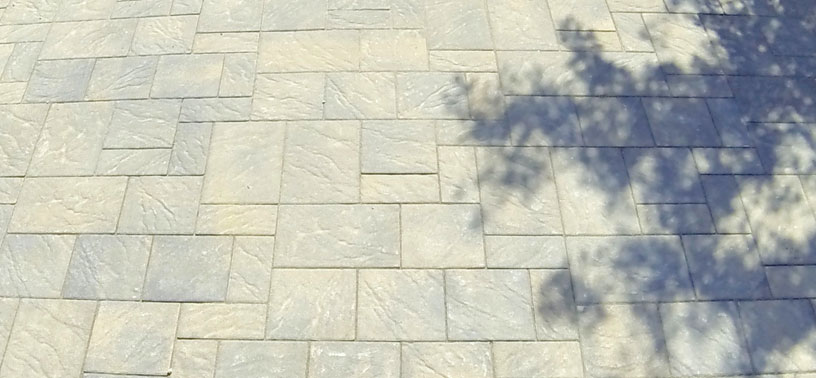The Pros and Cons of Concrete Paver Patios

You have plans to put in a new patio, walkway or driveway and are considering all of the options. In a previous article we reviewed the options for finish materials, including poured concrete and natural stone, but today I wanted to take a closer look at the pros and cons of concrete pavers.
Advantages
- Flexibility. A concrete paver walkway or driveway is comprised of hundreds of individual bricks that are locked together with polymeric joint sand. This allows the bricks to support heavy loads while retaining the ability to move with seasonal changes in the soil moisture content. Often, things that are strong are also very rigid, not so with a driveway or walkway done with concrete pavers!
- Ease of repair. If a section of your driveway or patio becomes uneven over time it is possible to repair a small section of pavers without having to re-do the entire thing. Changes and expansions can also be done in such a way that they are indistinguishable from the original space. The ease of repairs and additions means these changes are more economical than with poured concrete.
- Wide range of styles, colors and patterns. With so many different types of concrete pavers available, the design possibilities are almost endless. Much of the work we do is in elegant monochromatic color schemes, but vibrant, striking designs are possible by using contrasting paver colours, and by mixing different styles and patterns.
- Immediate usability. Unlike poured and stamped concrete that has to cure for 3 to 4 days, pavers are ready to enjoy as soon as the installers have cleaned up the work site. No "wet concrete" signs needed!
- Low maintenance requirements. There was a time when concrete pavers required some effort to keep the joint sand from being washed away and to keep weeds from settling into the joints. The introduction of polymeric sand has eliminated those problems, making patios and driveways nearly maintenance-free.
Disadvantages
- Initial Cost. Concrete pavers are initially a little more expensive than some of the other patio options. But, they will maintain a nearly new appearance longer than poured concrete. When you factor in the ease of repair and alteration of paver bricks, you may find that the longer-term cost of concrete is actually higher.
- Difficult DIY project. For those of you who enjoy a challenge, it's certainly possible to do pavers on your own, but it's not as easy as pouring concrete. Without some specialized skill and equipment, concrete paver installation makes for a very challenging DIY project.
If you are ready for a challenge, have a look at our article Building it Yourself: A Guide to Paver Patio Construction.
If you would like to know more about the physical and technical demands of concrete paver installation send us an email at dwayne@earthworkslandscaping.ca. We'd be happy to help!



